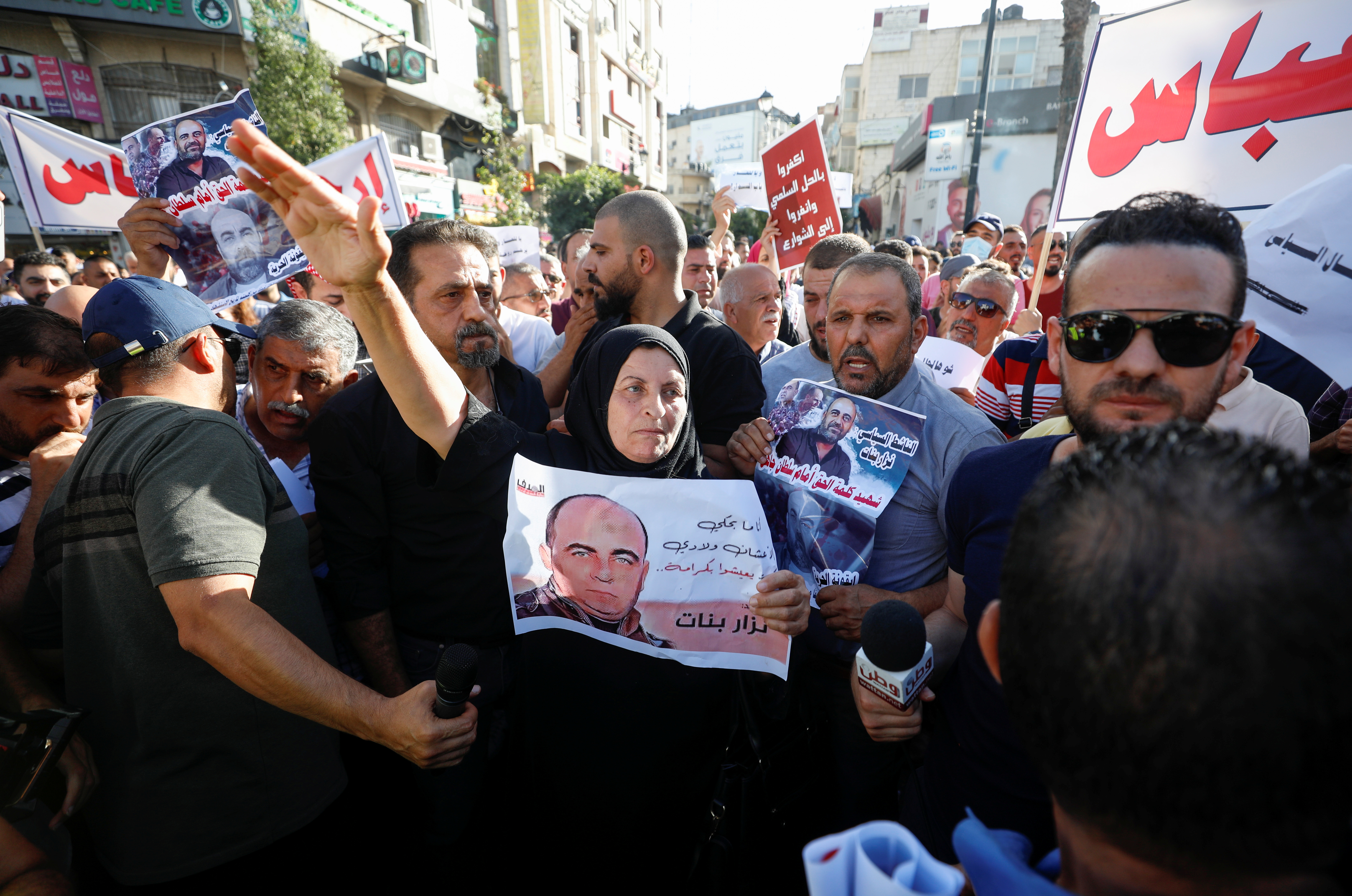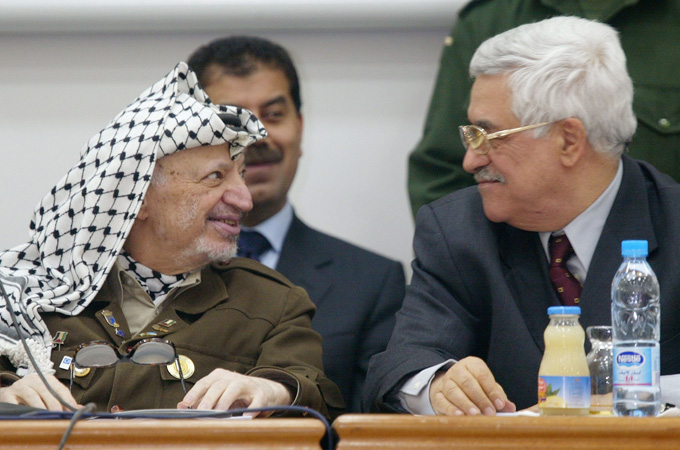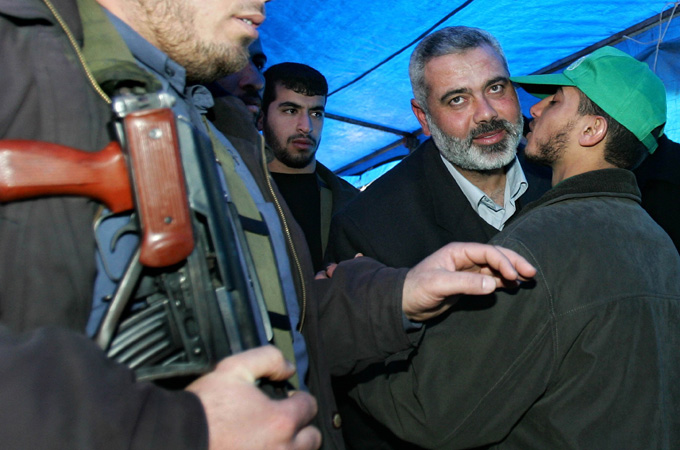
The Palestinian Authority (PA) is a governing body that has overseen parts of the Israeli-occupied West Bank since the mid-’90s. Its creation was supposed to pave the way to an independent Palestinian state, but today it is considered to have little real power and is operating under the control of the Israeli military.
The PA is dominated by Fatah, a secular political party founded by diaspora Palestinians after the 1948 Nakba, or “Catastrophe”. Fatah is also the driving force of the Palestinian Liberation Organisation (PLO), an umbrella organisation comprising several political parties, which claims to represent Palestinians worldwide.
Here’s what you need to know about the PA:
When was the PA formed and what was its aim?
The Palestinian Authority (PA) was set up in the mid-’90s as an interim governing body that would pave the way to setting up an independent Palestinian state on the 1967 borders, with East Jerusalem as its capital.
It was a product of the Oslo Accords between the Israeli government and the PLO – then led by Yasser Arafat. Today, those accords lie in tatters, with Israel expanding its settlements and bypassing roads in the West Bank and East Jerusalem in a de facto annexation of territory that should have been part of the putative state of Palestine. The last round of talks fell apart in 2014.
Are PA members elected?
The PA has an elected presidency and unicameral legislative council (parliament) called the Palestinian Legislative Council (PLC). However, there have been no presidential elections since incumbent Mahmoud Abbas was elected in 2005, and no parliamentary elections since 2006. The PLC has not convened since 2007, when Abbas’s Fatah split from rival group Hamas after a brief civil war. Abbas has ruled by decree ever since.
When his four-year term ended in 2009, Hamas declared Abbas illegitimate. Abbas argued that he should stay in post for a further year, so presidential and parliamentary elections could be held at the same time. To this day, he remains in post.
Who is Abbas?
Abbas, now 87, succeeded archrival Yasser Arafat as president of the PA. Still in mourning for Arafat, Palestinians nevertheless heralded Abbas, also called Abu Mazen, as a reformer who would bring peace.

The arrival of Abbas was also welcomed by Israel and the West, who viewed him as the best guarantor of stability in the region. In contrast to Arafat, Abbas had been critical of violence during the second Intifada.
But, according to some, Abbas’ victory had been a slam dunk, assisted by alleged restrictions on the movement of rival candidates and ample broadcast coverage.
Just a year later, the PA lost its grip on power after Hamas won parliamentary elections, taking control of the Gaza Strip after a brief civil war. Hamas, which has refused to recognise the state of Israel, had campaigned on an anticorruption and anti-Western platform.

What is the relationship between the PA and Hamas?
Today, the political and territorial split between Abbas’s Fatah party and Hamas, seated respectively in the West Bank and Gaza, has become deeply entrenched.
The two territories have grown into markedly different entities, Fatah’s PA enjoying international recognition and backing, while Gaza under Hamas, designated terrorists by the West, has grown increasingly isolated. Egypt has helped Israel enforce a land, sea and air blockade on Gaza for the past 17 years.
An attempt in 2014 to set up a National Accord Government uniting the two groups fell apart. Three years later, a reconciliation deal that might have seen Hamas handing over administrative control of Gaza was stymied by disputes about disarmament. In 2022, delegates from 14 Palestinian factions got together in Algiers to sign a new reconciliation deal, with plans to hold parliamentary elections by the end of 2023 – it would have been the first poll in 17 years.
What are the PA’s relations with Israel?
In appearance, the PA has all the trappings of a state, with ministries and a civil service, but Israel wields the real power, turning the tap on tax revenue, and controlling access to the shrinking territories – a status quo often compared with the Bantustans of apartheid-era South Africa.
Israel frequently bypasses the PA, invading areas that are supposed to be under PA control, such as the Jenin refugee camp, which was raided three times by Israeli soldiers this year – 20 Palestinians were killed in the violent incursions before fighting between Hamas and Israel broke out on Saturday. The Israeli authorities also impose an impossible web of restrictions over all aspects of Palestinian lives, including where they can travel, live and build.
The PA has actively helped Israel to keep tight control over the Palestinian population. Many perceive the body as a tool of the Israeli security apparatus, its US-trained forces not only targeting those suspected of planning attacks on Israelis, but also arresting union figures, journalists and critics on social media.
However, following July’s raid on Jenin, the body announced it would cease security cooperation with Israel. Previous attempts to suspend cooperation have not tended to last long. In May 2020, responding to Israeli declarations that it would annex large parts of the West Bank, the PA halted ties with Israeli forces for six months.
Does the PA represent the Palestinian people?
While the PA employs and pays dwindling salaries to tens of thousands of civil servants, it does not enjoy their support. In a poll conducted by the Palestinian Center for Policy and Survey Research in March, 63 percent of respondents in the West Bank and Gaza viewed the PA as a burden on the Palestinian people.
Many now view Abbas’s government as authoritarian, propped up by the likes of the EU and other deeply invested donors who have thrown billions of dollars into keeping his sinking ship afloat. The administration is viewed as irredeemably corrupt – PA bigwigs enjoy VIP status and lifestyles, with travel privileges not afforded to the rest of the population. Its reputation sunk to new lows when Abbas called off elections in 2021, fearing Fatah would be trounced in the poll. Protests erupted after Nizar Banat, an independent candidate, was arrested, and later died in police custody.
Abu Mazen is one of the last surviving members of an iconic age of Palestinian resistance. While gifted with the diplomatic skills that yielded the Oslo Accords, it appears that his legitimacy has been sacrificed on the altar of political survival.







